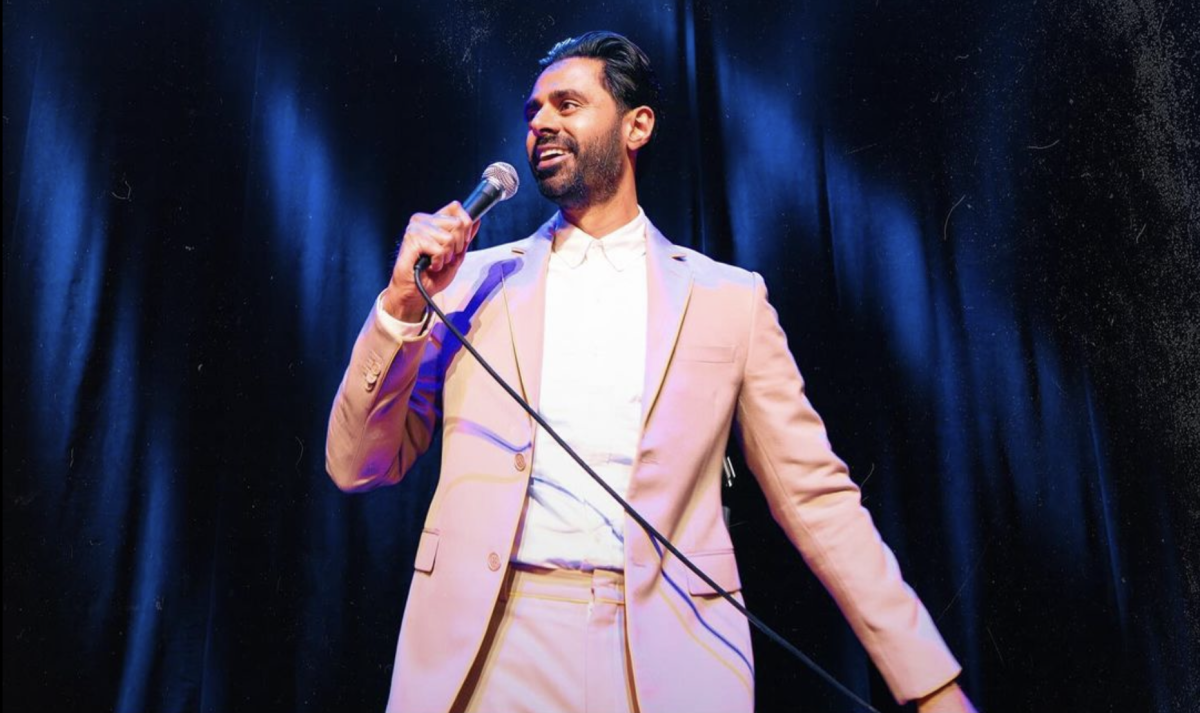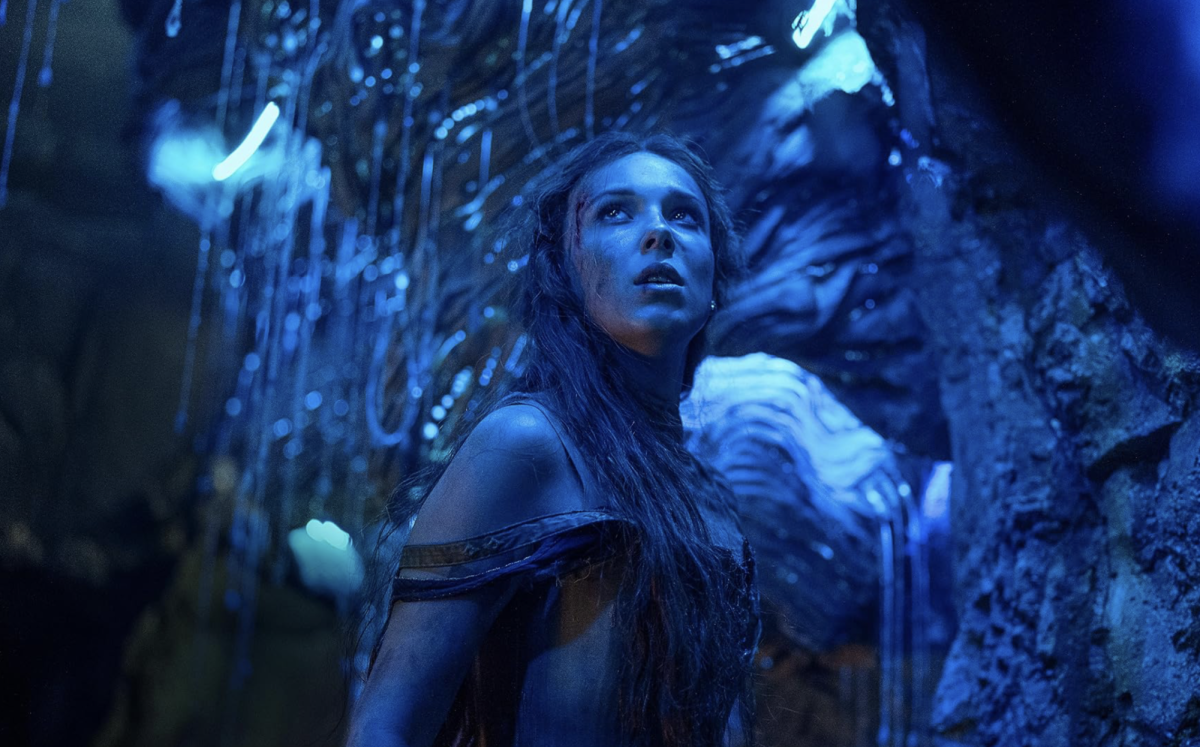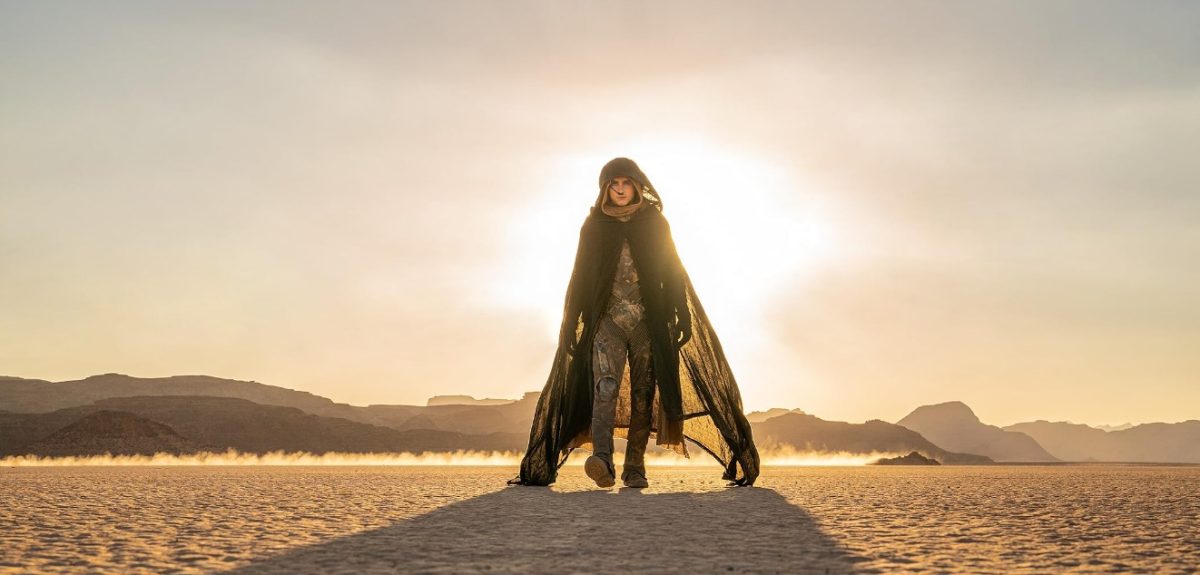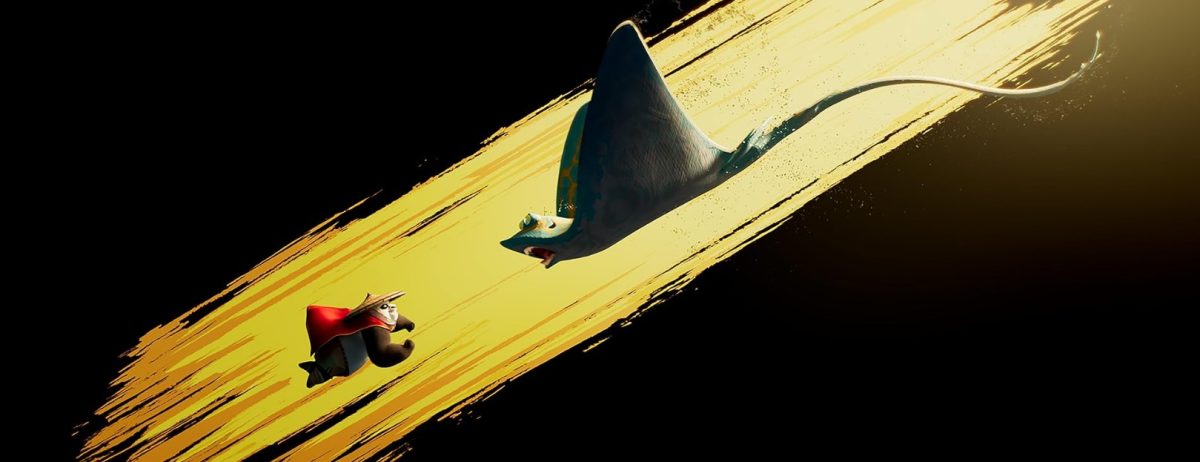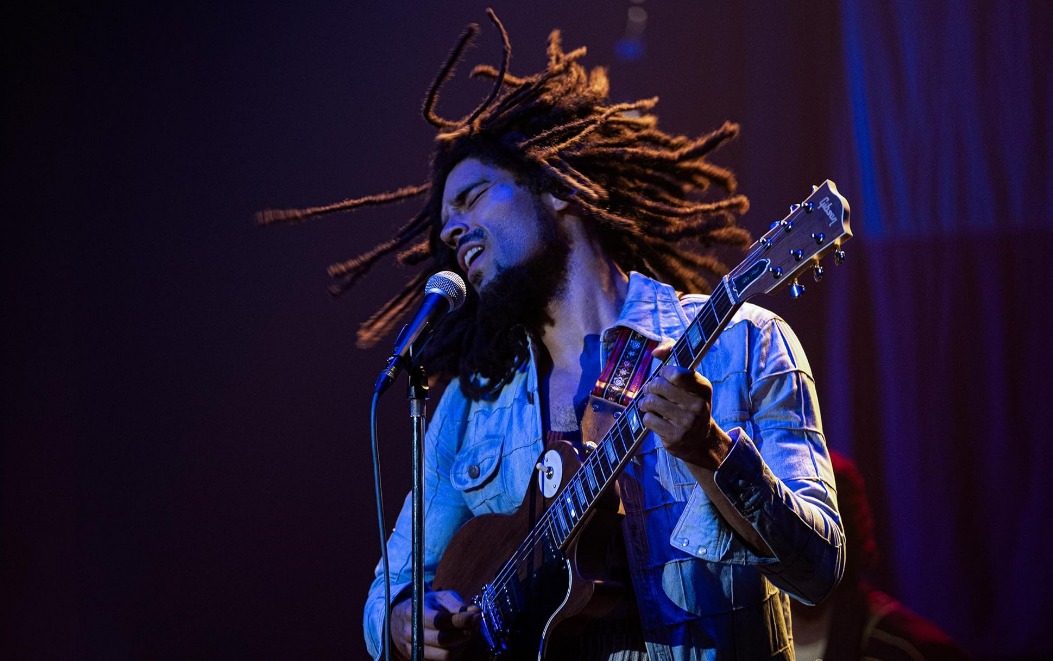
When viewers arrived at the entrance to The Anthem Feb. 16 and 17, Hasan Minhaj had their phones locked in bags. The audience sat abuzz with no option but to socialize before two South Asian openers, Meghana Indurti and Malik Elassal, warmed the crowd up.
In the incisive, characteristically witty “Off With His Head,” the “Patriot Act” headliner and former Comedy Central contributor deftly navigated recent controversy, pushed American audiences and created an immigrant-centric masterpiece that almost rivaled his breakout standup special, “Homecoming King.”
Minhaj started off by shredding the New Yorker exposé published on him recently in which a “white woman with a computer” fact-checked his comedy specials’ claims and accused him of fabricating stories of racism and Islamophobia. Fortunately for Minhaj, “brown people keep receipts,” and he published multiple email chains and sources to prove that, despite his willingness to comply with the reporters, she neglected to fully acknowledge his claims.
Multiple famous comedians have come out in support of Minhaj’s storytelling and explanation of the “emotional truth” behind his work: Comedians quite naturally stretch the truth to entertain their audiences, but Minhaj received abuse and a follow-up article in the New York Times that may have reflected differential treatment toward the South Asian comedian. Minhaj took the issue in jest, joking that his Wikipedia tab has been updated with a “Controversies” section, but it’s the lamest possible incident.
Similar to “Homecoming King,” my favorite of his specials, Minhaj dipped into the hilarious intricacies of immigrant culture, discussing our complete disregard for boundaries and relationships with our parents. As someone who grew up in an immigrant household, the warmth and vulnerability in his jokes spoke to me and, it seemed, many in the South Asian-heavy crowd at the show. His comedy skillfully navigated the serious topics of poverty, generational trauma, arranged marriages and cycles of abuse while finding the light and love in immigrant life.
In particular, Minhaj’s discussion of conservative immigrant behavior seemed to shed light on the entry of South Asians into Republican politics. Explaining his father’s racism, Minhaj said that once he showed his father how much money he made from the jokes, his father gave him free rein to make fun of him. Minhaj jokingly explained to what he labeled as the tote-clutching, NPR-listening Caucasians in the audience that immigrants, including Minhaj, are sellouts sometimes. Individuals like Nikki Haley and Vivek Ramaswamy, he said, are part of the larger reflection of immigrant priorities, the first of which includes paying as few taxes as possible.
Funnily enough, the jokes that received the most mixed reactions were not about his deep dive into immigrant culture, his father’s racist attitudes or his attacks on the New Yorker. Instead, that distinction went to Minhaj referring to Taylor Swift as a “Caucasian Gandhi” and “white civil rights activist.” Despite Minhaj’s refusal to rip into her work as a woman, Swift’s fans seemed unhappy with his pointing out Travis Kelce’s potential for CTE, or chronic traumatic encephalopathy, a degenerative brain disease many football players contract from constant physical contact and concussions. Minhaj joked that Kelce might pose a danger to the singer-songwriter down the line.
But the controversial joke you will not be seeing on the Netflix version of this special wasn’t about Taylor Swift — it was Minhaj’s piece on Americans’ treatment of their parents and dogs. As many traditional immigrant parents do, Minhaj’s expect him to take care of them when they are older. Although Minhaj — like many immigrant children — admitted he isn’t thrilled about having to live with his parents again, he stressed that such was the duty of children who grow up in collectivist societies. At this point, Minhaj prefaced the joke by explaining that Netflix would not allow him to share it while filming his special — they’d have preferred jokes about something less controversial, like the Middle East.
Growing up in an immigrant household myself, I would hear my parents react to the sad commercials for shelter pups with a sentiment that Minhaj now echoed: “Americans care more about dogs and cats than other people.” Minhaj joked that Americans will spend thousands of dollars on expensive daycares for their dogs, where they receive hourly pictures of their beloved resident. On the other hand, elderly parents are often sent off to assisted living facilities, where Americans would be less than happy to get hourly pictures of their mother eating Jell-O or playing cards.
In my opinion, this stand-up routine was much better executed than Minhaj’s previous “The King’s Jester,” whether because of his clever use (and abuse) of the stool he had on stage or his willingness to take more pointed jabs at hypocrisy in the wake of the “lamest controversy ever.” Although he may have failed to secure the position of host for Comedy Central, fans (and critics) can rest assured that Minhaj has a promising future ahead of him.


